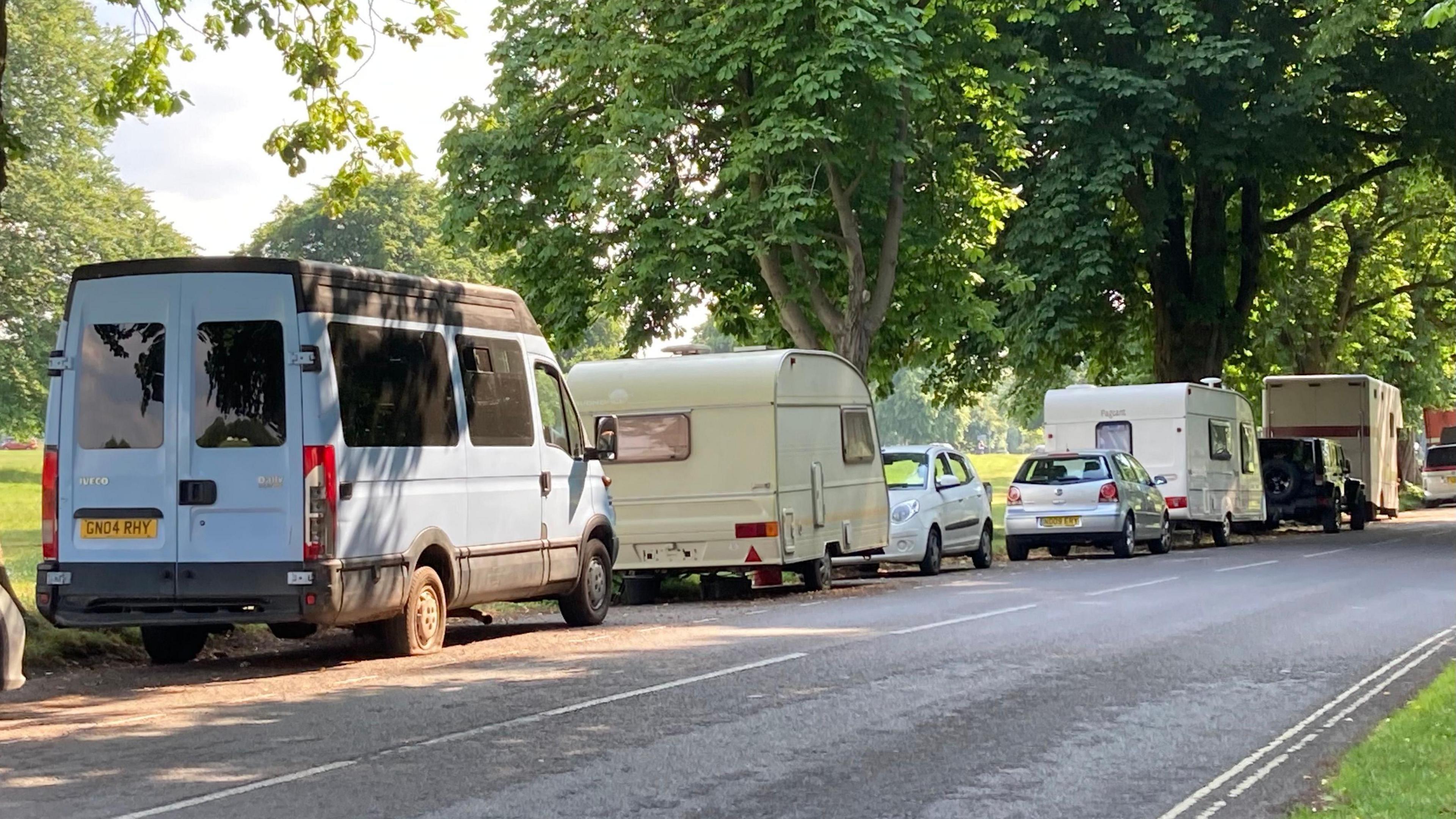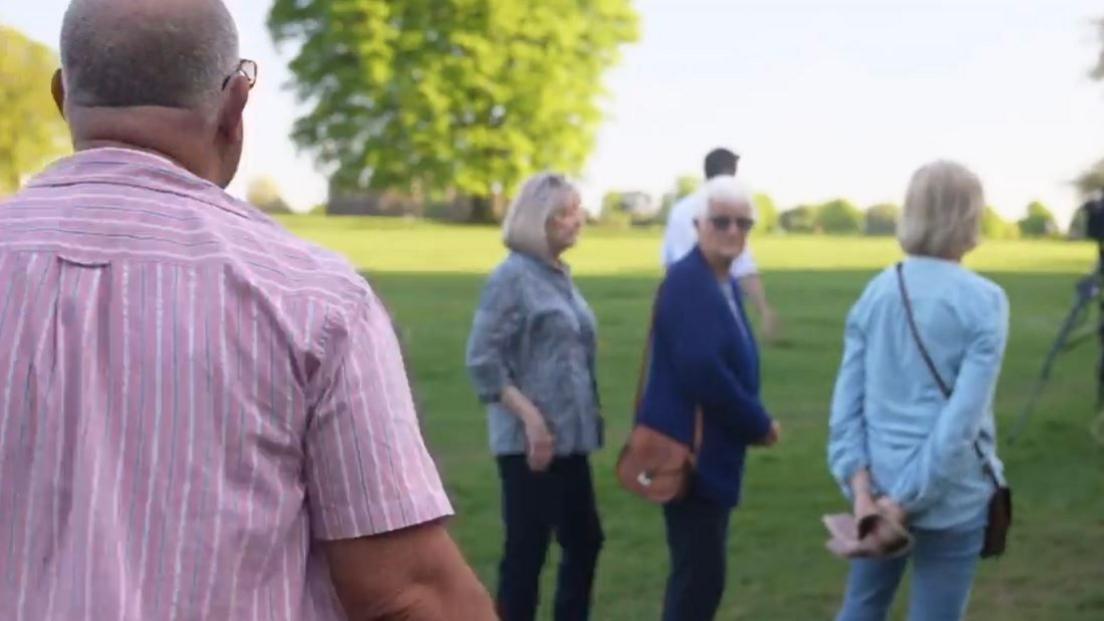Van dwellers to be moved as park 'used as toilet'
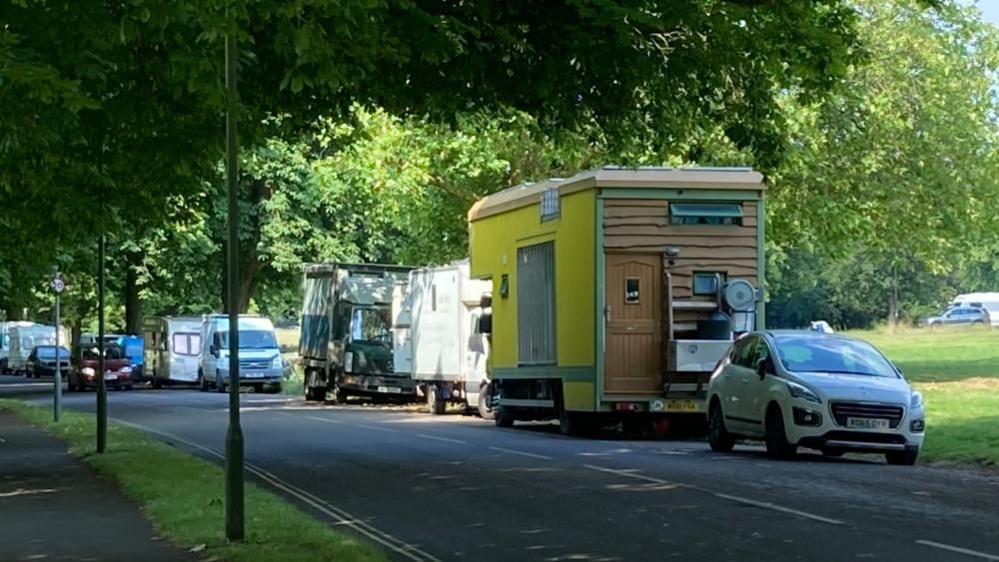
Bristol City Council will soon clear people living in vehicles on the Downs
- Published
One of the UK's biggest van-dwelling communities is to be cleared after evidence emerged that park space is being "used as a toilet".
Bristol City Council said human waste left at Clifton Downs was "not acceptable" and presents a serious hazard. There are about 100 vans parked up on the edge of the Downs, the council estimates.
Council leaders said they are working on a place for evicted van dwellers to move to and outreach workers would prioritise support for "the most vulnerable people".
But Tyler, who has lived on the Downs since the summer, said he cannot afford Bristol's high rental prices, adding: "We're doing the best we can to survive. It isn't a matter of luxury."
While the council said it understands not all of the van dwellers are responsible for leaving human waste, it said it "must take action to put an end to this behaviour".
In a statement released on Monday, the council said its enforcement officers had found several sites on the picturesque Downs being used as organised toilet facilities, filled with human waste.
"Quite simply, this is not acceptable and presents a significant public health issue," said a statement written by councillors Barry Parsons and Stephen Williams.
"Human waste represents a serious hazard to anyone using the Downs, particularly young children and pets who may play in bushes.
Since the inspection, Bristol Waste's workers have been on site to clear the affected areas and will return to remove further waste.
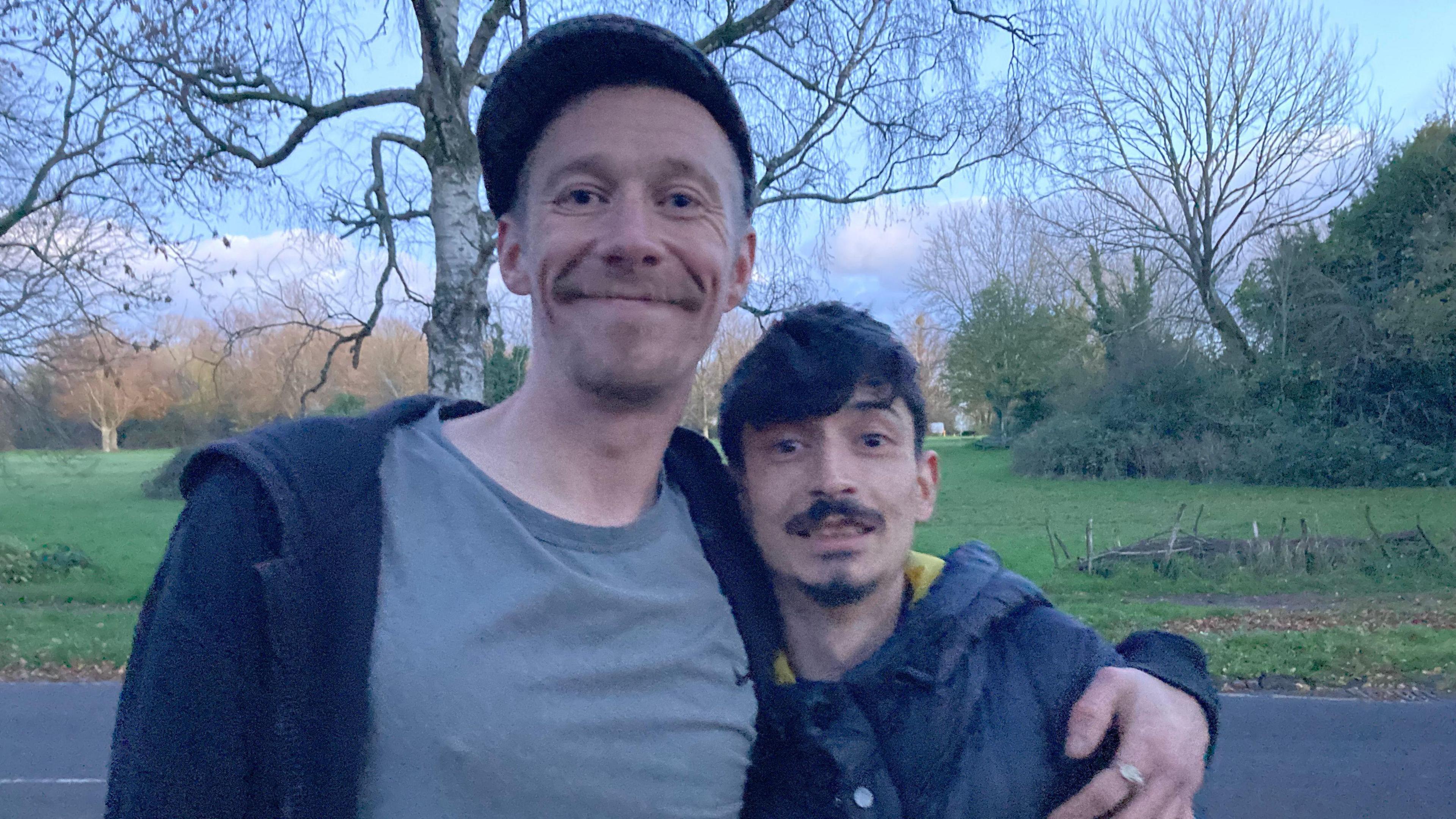
'I don't know what there is for us after this,' says Tyler, a van dweller on the Downs
Tensions between vehicle dwellers and residents on the Downs have been rising over the last few years.
Several van dwellers have told the BBC that they chose to live in vehicles due to the housing crisis.
Neville, who has lived in his caravan on the edge of the Downs for the last five weeks, said the influx of van dwellers in Bristol is a "domino effect" from the city's housing crisis.
The 32-year-old, who says he works 60-70 hours a week as a chef, described the council's decision as "inhumane".
"I've spent nearly 13 years in the city, and I've watched the prices for a house share alone, which is what most people can afford, to go up nearly double the price, if not more," he said.
"So for me, the question isn't 'why are we having people up here?' It's 'why haven't we got affordable housing in a city'."
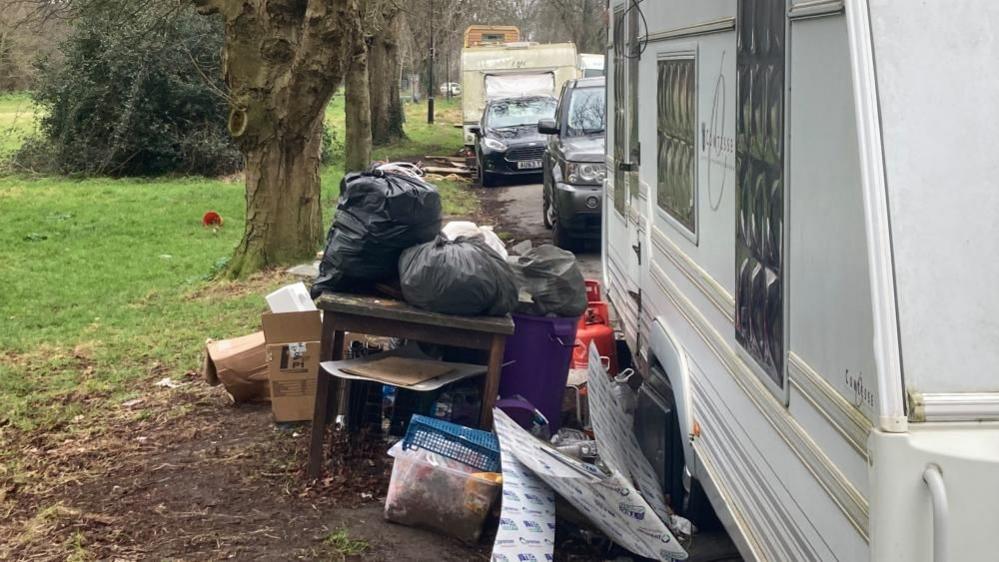
Some locals have raised concerns about an increase of waste in the area
Last month, the council proposed to offer people up to three months' support to find an alternative to living on the kerbside, before enforcement action is taken.
It also said it wanted to create 250 pitches for people living in caravans on temporary "meanwhile sites" to provide basic services and a safer alternative to roadside living.
Tyler, who has lived on the site since the summer, claims that no one from the council has contacted him to allocate him a "meanwhile site" since he arrived at the Downs in the summer.
"I don't know what there is for us after this. This was the last resort for a lot of people anyway," he added.
The council currently has five meanwhile sites with 65 pitches - all of which are taken.
Get in touch
Tell us which stories we should cover in Bristol
Follow BBC Bristol on Facebook, external, X, external and Instagram, external. Send your story ideas to us on email or via WhatsApp on 0800 313 4630.
Related topics
- Published21 October
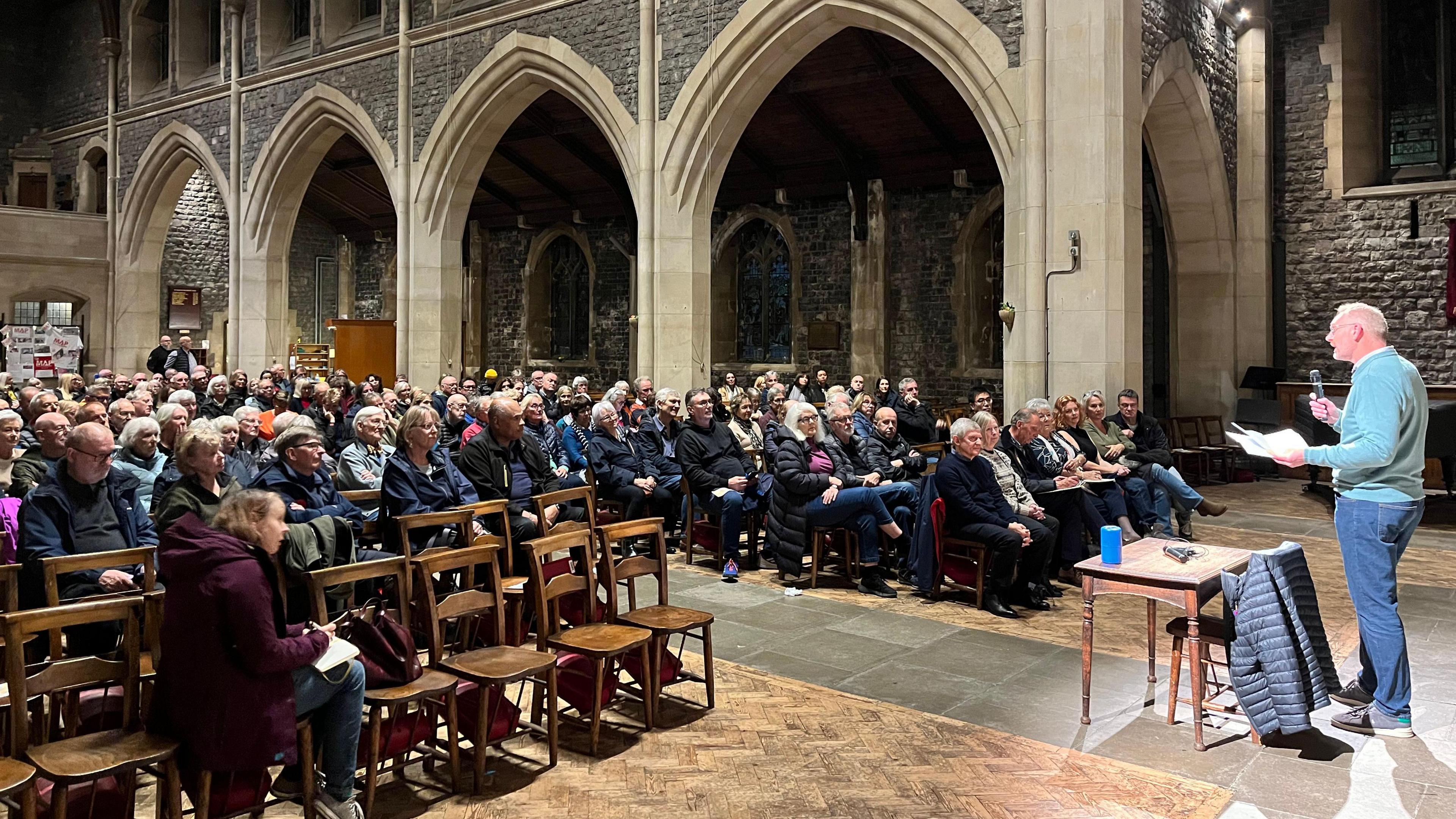
- Published11 September
